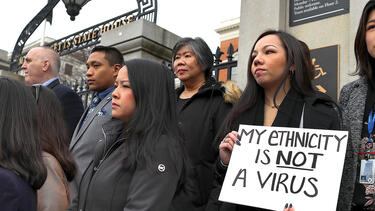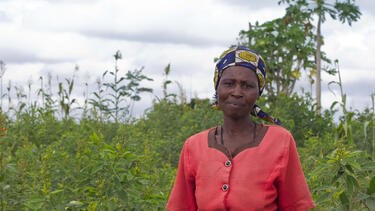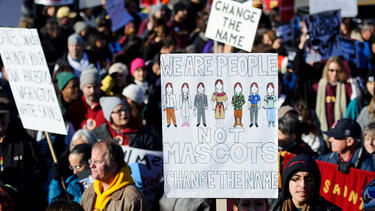Diversity and Inclusion
For Women, Female Peer Groups Are Crucial for Career Advancement
When women have more female peers in their MBA programs, they are more likely to reach senior management roles, according to a new study co-authored by Yale SOM’s Menaka Hampole.

How White Managers Can Respond to Anti-Black Violence
Yale SOM’s Michael Kraus offers a series of concrete steps that leaders can take to combat racism in their own organizations—and contribute to the societal fight against injustice.

Training Girls for the Building Trades, Virtually
Demi Knight Clark, founder of She Built This City, describes how she remade a nonprofit that teaches hands-on buildings skills for a world forced to go virtual.

Anti-Asian Racism Exposes the Model Minority Myth
Yale SOM’s Michael Kraus and Eunice Eun argue that anti-Asian bias provoked by COVID-19 reveals the ongoing influence of racism in the country.

Male Scientists Praise Their Own Research More
According to a study co-authored by Yale SOM’s Olav Sorenson, male scientists are more likely than their women colleagues to use words like “novel,” “excellent,” and “unique” to describe their own work in the titles and abstracts of research articles.

When Women Speak, Do People Listen?
In a study of farming villages in Malawi, Yale SOM’s Mushfiq Mobarak and his colleagues found that women’s performance on communication tasks seemed to be hindered by how other people received their work.

Single Women Get Lower Returns from Housing Investments
A new study from Yale SOM’s Kelly Shue and Paul Goldsmith-Pinkham finds that single women who buy and sell real estate lose out on an average of $1,600 per year.

In Finance Field, Gender Disparities Are Significant—But Shrinking
More women are being hired for finance positions at top business schools, according to a study co-authored by Yale SOM's Heather Tookes, but progress is slow. The study suggests that this may be due to limited collaborator networks.

A Few Seconds of Speech Sparks Class Bias in Hiring
New research by Yale SOM’s Michael Kraus shows that people can accurately assess a stranger’s socioeconomic position based on brief speech patterns and that these snap perceptions influence hiring managers in ways that favor job applicants from higher social classes.

When the School Mascot Is a Native American Stereotype
Researchers led by Yale SOM’s Michael Kraus and psychology doctoral student Xanni Brown found that a university community’s acceptance of a racist symbol affects students’ sense of belonging and may decrease willingness to donate in the future.

Why Leaders Need to Care about Diversity
Eileen Murray, the co-CEO of the world’s largest hedge fund, Bridgewater Associates, says that top leaders at financial firms need to do more to foster diversity—or risk falling behind in the race to innovate.
